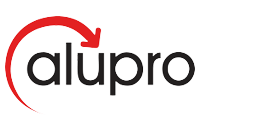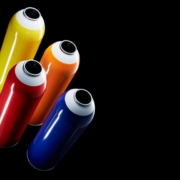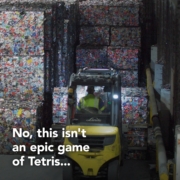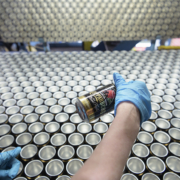Position Statement:- The Aluminium Can Production and Recycling Industry Position re: Digital Deposit Return Scheme (DDRS)
31 October 2023
Position Statement:- The Aluminium Can Production and Recycling Industry Position re: Digital Deposit Return Scheme (DDRS)
Aluminium drinks cans are a real success story for the circular economy; not only are they completely recyclable but they are widely recycled, with the industry achieving an impressive and market-leading UK recycling rate of 82%.
Our industry wants to go further, with ambitions to recycle 100% of cans by 2030. A well-designed Deposit Return Scheme (DRS), such as those of Finland or Denmark, is a key instrument to achieve this. Successful and long-running DRS’ like these, based on a ‘return-to-retail’ structure and return vending machines (RVMs), not only tackle litter and deliver ever-higher collection rates for cans but also typically guarantee higher quality feedstock to the recycling process. Cans contaminated with plastic and other undesirable materials, typically sourced from UK kerbside co-mingled collection systems, need additional sorting to remove these ‘non-target’ elements. Whilst not hindering recyclability, this adds costs and waste to the recycling process which could be avoided if those cans instead were collected through a conventional DRS.
Therefore, our industry is opposed to any proposal that doesn’t guarantee lower contamination levels for recycling, doesn’t demonstrate that it can support our sustainability ambitions nor conclusively tackle litter.
On these grounds, the aluminium packaging and recycling sector does not support a Digital DRS (or DDRS), defined as an alternative DRS model where instead of all containers being taken to return points by consumers, deposits can be redeemed by the public through mobile technology by scanning unique codes (e.g. QR marks) on each container which can be recycled through existing systems (e.g kerbside collections). The studies and trials exploring DDRS’ to date have highlighted the potential theoretical benefits of such a system, but these have yet to be demonstrated not only at scale but also, more fundamentally, that the requirements placed on the packaging value chain by a DDRS are even feasible or sensible. They have proven simply that the public appear, quite understandably, supportive of recycling initiatives that they can participate in by using an app at home.
Our challenges to the concept revolve around two themes. Firstly, that a DDRS cannot be facilitated by the aluminium beverage packaging and supply chain and secondly that it is not as effective as a conventional DRS as a measure that improves packaging sustainability and recycling rates.
| Feasibility and Operational Challenges | Sustainability Challenges |
| · The printing of unique codes on containers at rapid line production speeds is not feasible; the technology to do so is expensive and requires factories to significantly lower their throughput.
|
· A DDRS does not guarantee improvements in the quality of collected drinks cans by reducing contamination, reducing cost and environmental benefits of a DRS of any kind for recyclers. |
| · Over 90% of soft drinks and over 60% of beers and ciders are sold in multipacks in the UK; no trial has yet demonstrated how to manage the simultaneous activation of between 4 and 24 individual deposits at the point of sale.
|
· A DDRS does not guarantee that containers which have had their deposit redeemed will actually be recycled; without the collection offered by RVMs, containers could still be littered. |
| · In a traditional DRS, revenue from the sale of collected materials helps to fund the scheme. In a DDRS, material ownership is not defined as containers will still be mixed with other packaging, so a new funding model will need to be developed.
|
· It is unclear if a DDRS offers significant carbon efficiency when compared to a traditional DRS. For example, will the savings from needing fewer RVMs be offset by the continued treatment of contamination seen under current recycling collection regimes? |
| · DDRS is not supported by all UK nations, further jeopardizing the interoperability of a national scheme.
|
A 2023 report by consultants Eunomia “Serialised Deposit Return Systems: An assessment of the feasibility and desirability of container serialisation and alternative DRS return pathways in Belgium”, prepared for Recycling Netwerk Benelux, highlighted these same concerns and identified others.
For more information and for enquiries, contact info@alupro.org.uk.
Signed:-
| Company | Alupro
|
Company | Metal Packaging Manufacturers Association
|
||
| Name | Tom Giddings,
Executive Director |
Name | Robert Fell,
Executive Director |
||
| Signature |  |
Signature |  |
||
| Company | The Can Makers Committee
|
||||
| Name | Tim Conybeare,
Chairman |
||||
| Signature | 
|







